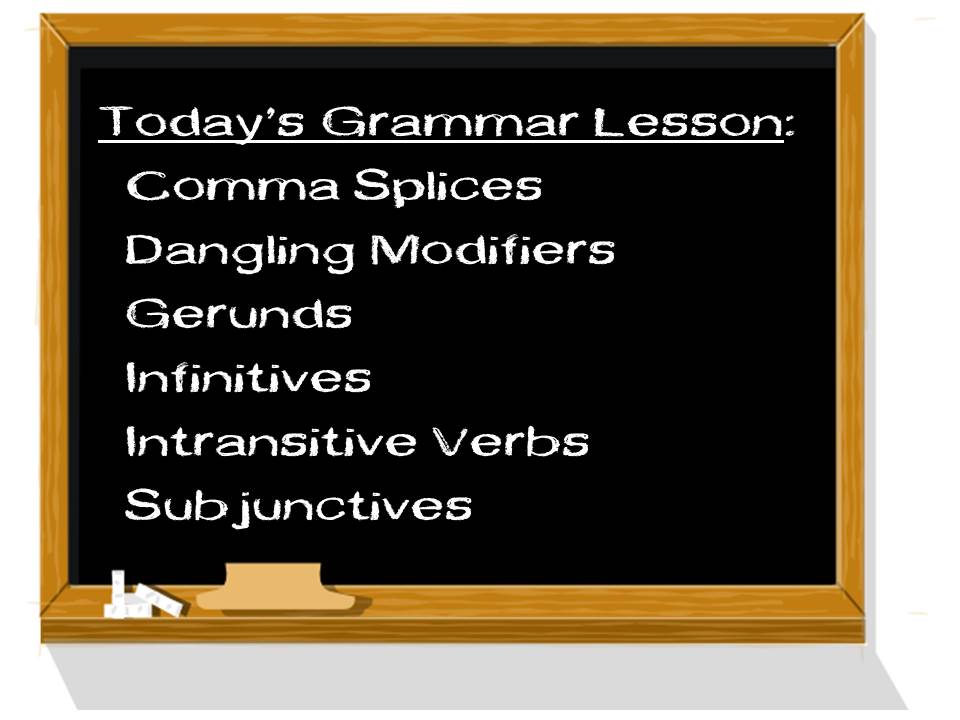 You’d like to write a story, you really would. But there’s that awful memory of your grade-school English teacher trying to convey the meanings of comma splices, dangling modifiers, gerunds, infinitives, intransitive verbs, and subjunctives. You’ve forgotten all that stuff, so you think there’s no hope.
You’d like to write a story, you really would. But there’s that awful memory of your grade-school English teacher trying to convey the meanings of comma splices, dangling modifiers, gerunds, infinitives, intransitive verbs, and subjunctives. You’ve forgotten all that stuff, so you think there’s no hope.
There’s hope. Yes, there are a lot of English grammar terms, and it can be hard to recall what they all mean. And yes, just like with any occupation, you should know the specialized lingo that comes with it.
However, in my view, a detailed knowledge of all the English grammar terms belongs way down on your priority list. The very first item on that list is being able to tell a story in a compelling way. If you can manage that, I think most editors don’t mind correcting a few language flaws. They’ll take a single passionate spinner of yarns over a hundred boring grammarians every time.
Ever started a car engine and driven a car? Can you name all the parts of an automobile engine? Perhaps you noticed you can drive pretty well without knowing all those underlying details. Writing’s like that.
You can re-learn the grammar stuff at your leisure. But telling a tale that captivates readers, ah, that’s a skill much more difficult to learn or teach. Focus your efforts there.
As a service, I’ll provide explanatory examples of the grammar terms I mentioned earlier. There are a myriad others you might have forgotten, but you can look them up on sites like this.
- Comma splice. I’m using a comma to link independent clauses, that should be acceptable. In most cases, it’s not.
- Dangling modifier. One morning I saw a dangling modifier in my pajamas. How it got in my pajamas, I’ll never know (and thanks, Groucho!).
- Gerund. It’s the taking of a verb such as ‘take’ and reshaping it into a noun like ‘taking’ by adding ‘ing.’
- Infinitive. To understand infinitives is to know something complex, but to simplify, you’re urged to add ‘to’ before a verb.
- Intransitive verb. These are the independent, self-sufficient kind of verbs that don’t need no stinkin’ object. They exist. They stand alone.
- Subjunctive. If I were to take a concrete, here-and-now verb and elevate it to new a new and uncertain stratum of possibility, hope, or opinion, I’d be making it a subjunctive. (Like to take and be making.)
Don’t despair if you can’t recall all the grammar terms. I’m sure some famous authors don’t know them all, either. Learn to write well now, and master the grammar terminology later (or maybe not ever). Whether you agree or not, let me know by leaving a comment. No one’s idea of a master grammarian, I’m—
Poseidon’s Scribe
